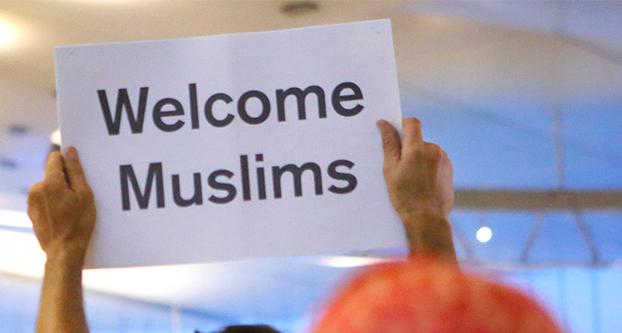It’s important to know when people’s decisions are based on their religion. Important because, although we may not always agree with their faith, their firm beliefs fuel their everyday actions which then have an effect on everyone else.
There are extremely scary points where someone’s religion is used to carry out violent actions against fellow humans. And there could well be cases in which laws are inspired by someone’s faith or belief in God — God-believers in the U.S. slightly declined, according to a 2015 Pew Research Center study.
We’ve seen time and time again the debates among communities when an “In God We Trust” sign goes up at a city hall somewhere. Nevertheless, heated tension is not alien to the area of religion. One question we should ask, however, is whether placing an “In God We Trust” sign is the fair thing to do when we have such diverse religious communities.
There are also other questions that could help when trying to understand religion and its impact on our neighbors. I stopped following my Catholic faith because I lost interest in the teachings. But for those who keep up with it for the long run, why do they do it?
Understanding everything about religion would take quite a long time. But in a short quest to shine even a dim light on how religion plays a part in the lives of individuals, I learned a few things that are worth sharing. I spoke to a few students and a professor who enlightened me.
I first heard from Breanna Rodriguez, fifth-generation Apostolic Pentecostal, who told me that being another generation of faithful followers of her faith is more of a choice for her than it is keeping family tradition. Like many others, her belief in God is strong.
The reason she gave made sense to me: believing in God has helped her endure difficult times throughout her life.
Rodriguez said she struggles with mental health. Prayer and scriptures that encourage strength and hope have only helped her grow a deeper connection to her faith. She also said that losing six people in her life has led her to seek comfort — and she has found her solace in the presence of God.
The value Rodriguez places on her faith is evidently linked to her life experiences. I learned that this is the case for many religious followers after speaking with Fresno State Anthropology professor Henry Delcore, who teaches a course on religion.
Delcore told me that the faith people choose to follow typically has meaning to them because people link their own experiences to it. A key factor in determining the importance of one’s religion is to consider their background.
What I learned from Delcore was that it is important to talk about religion in the context of racial, economic and historical backgrounds. When someone talks about the power of their religion, Delcore told me, we should ask what it is about that particular person that makes their religious experience important to them. Were they hurt at one point? Did a certain faith offer them a way to cope with their struggles? Are they in a better place now after choosing to join a church?
All the approaches to religion by students who take Delcore’s class have validity, he told me. That has to do with everyone being able to control what they believe based on how they have experienced life.
Religion serves a function that many of us would benefit from learning. It could deter the next atrocity caused by disagreement on whether one’s religion is better than the other. We have seen ugly things play out in the headlines in regards to religion.
There is, for example, the ban on travelers from certain countries with a majority of Muslim people. Why a ban on people? We should ask each other if the measure is really intended for stopping terror — because the numbers show a different story — or whether it is because we believe the negative, and false, stereotypes we hear about Muslims.
In speaking with Delcore, he told me that there is no evidence to prove any religious group is inherently violent. There are periods, he said, where certain people within a religious group will engage in extremist behavior.
But that could depend on the political, economic and historical context of the time, Delcore said. When we learn to examine these areas, things become less a question of “is one religion bad” and more about how is one’s economical or historical experiences tied to his or her beliefs or actions.





